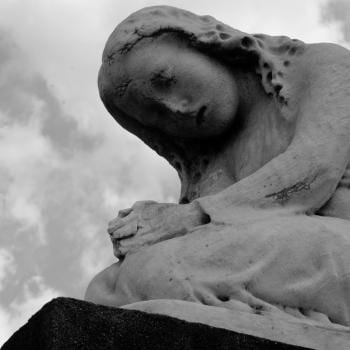Stepping Heavenward, Chapter XII, part 1
In case you haven’t been following along lately, we’ve found that Stepping Heavenward paints a picture of marriage that doesn’t exactly fit every stereotype of the patriarchal marriage of yore. Katy’s husband fails to tell her about their financial trouble, wanting to shield her from it, but when she finds out, she tells him that he needs to keep her in the loop—and that she would like to be involved in solving this problem. And the text makes it pretty clear that Katy is in the right here.
This week, Katy marches right out and gets a job.
I could not tell [Aunty] the whole story, of course, but I made her understand that Ernest needed money for a generous purpose, and that I wanted to help him in it. She said the children needed both music and drawing lessons, and that she should be delighted if I would take them in hand.
Katy decides she wants to keep this a secret, and gives the children their lessons at Aunty’s house, saving her earnings to surprise Ernest.
Meanwhile, Katy learns that Martha is sewing Ernest’s shirts. She is shocked and appalled that her sister-in-law would take over a task that obviously belongs to Ernest’s wife: her.
Really, how the blazes did extended families live together, “back in time” as my son would say, without killing each other? It’s hard enough to live in the same house with my husband, whom I chose voluntarily, and my children, whom I gestated. Throw in a few of my siblings and an odd parent here and there, and I can see things getting touchy quickly.
I get upset enough when my children leave bath towels on the floor in my room, and at least in their case, the fact that I have the authority to set certain rules and standards is (mostly) accepted. But live-in extended family members? Who sets the rules then?
What right has she to prowl round among Ernest’s things and pry into the state of his wardrobe? If I had not had my time so broken up with giving lessons, I should have found out that he needed new shirts and set to work on them. Though I must own I hate shirt-making.
Girl, maybe you should just let Martha do the shirts? I’m sure there’s a lot of sewing to be done anyway, and if Martha is bored and has so much energy, what’s the issue?
I could not help showing that I felt aggrieved. Martha defended herself by saying that she knew young people would be young people, and would gad about, shirts or no shirts.
Oh, FFS, Martha!
Now it is not her fault that she thinks I waste my time gadding about, but I am just as angry with her as if she did.
Katy, bless your heart, you could just tell Martha and Ernest about the music and art lessons. Then they would know you weren’t “gadding about” when you’re out.
But Katy ends up coming to a conclusion that I think, as I read through this book, is the primary reason this book still has a readership among evangelical women today:
And really, with so much to make me happy, what would become of me if I had no trials?
Evangelical women today may not have live-in sister-in-laws, but every person has those little things that annoy them. Everyone sometimes explodes, because things built up and they got pissed off. Katy suggests that these nagging little things are there for a heavenly reason—to prompt one to become a better person by overcoming them.
Nov. 15.-To-day Martha has a house-cleaning mania, and has dragged me into it by representing the sin and misery of those deluded mortals who think servants know how to sweep and to scrub.
This … is fascinating to the history nerd in me.
There’s a whole description here:
Does the whole duty of woman consist in keeping her house distressingly clean and prim; in making and baking and preserving and pickling; in climbing to the top shelves of closets lest haply a little dust should lodge there, and getting down on her hands and knees to inspect the carpet?
I think the answer is pretty clearly supposed to be no.
You know what else? Today, it is all too easy to imagine that in the past existed as some sort of monolith. Is it really any surprise? History teachers explain that, in the past, people “believed this” or “thought that.” We imagine that it is only the present that is so fractured.
Not so. Martha and Katy grate on each other in part because they have wholly different ideas about the relation between men and women.
The truth is there is not one point of sympathy between Martha and myself, not one. One would think that our love to Ernest would furnish it. But her love aims at the abasement of his character and mine at its elevation. She thinks I should bow down to and worship him, jump up and offer him my chair when he comes in, feed him with every unwholesome dainty he fancies, and feel myself honored by his acceptance of these services. I think it is for him to rise and offer me a seat, because I am a woman and his wife; and that a silly subservience on my part is degrading to him and to myself. And I am afraid I make known these sentiments to her in a most unpalatable way.
This. Is. Fascinating.
Of course, neither of these describe egalitarianism. But we can only assume that, in including both of these views, Prentiss seeks to draw attention to a disagreement that really did exist in her time—and soundly coming down on one side.
Let’s see. Ernest invites James to move in with them. James, Katy’s brother.
He says he has persuaded James to come and spend his college days here, and finally study medicine with him. Dear, darling old James! He is to be here to-morrow. He is to have the little hall bedroom fitted up for him, and he will be here several years. Next to having mother, this is the nicest thing that could happen.
Hah. Interesting. This is a good reminder that it’s not having relatives move in that has so unsettled Katy—this was something she expected. It’s having her father-in-law and Martha live with them, with their dour, judgmental temperaments that has her upset.
So, James moves in.
True to her theory on the subject, Martha invariably rises at [James’] entrance, and offers him her seat! He pretends not to see it, and runs to get one for her!
I like James. He is jovial and pleasant. He is kind to everyone, and he adores his sister.
Oh lord, then there’s this storyline!
Mrs. Embury was here to-day. She says there is not much the matter with Ernest’s father, that he has only got the hypo. I don’t know exactly what this is, but I believe it is thinking something is the matter with you when there isn’t. At any rate I put it to you, my dear old journal, whether it is pleasant to live with people who behave in this way?
The hypo. I assume that’s short for hypochondriac?
Oh and guess what! Katy’s father-in-law was internet diagnosing himself before there was internet! Oh yes!
In the first place all he talks about is his fancied disease. He gets book after book from the office and studies and ponders his case till he grows quite yellow. One day he says he has found out the seat of his disease to be the liver, and changes his diet to meet that view of the case. Martha has to do him up in mustard, and he takes kindly to blue pills. In a day or two he finds his liver is all right, but that his brain is all wrong. The mustard goes now to the back of his neck, and he takes solemn leave of us all, with the assurance that his last hour has come. Finding that he survives the night, however, he transfers the seat of his disease to the heart, spends hours in counting his pulse, refuses to take exercise lest he should bring on palpitations, and warns us all to prepare to follow him.
Self diagnosis by son’s medical books. That’s not one I’d heard before.
Katy, for her part, is a saint.
I am such a goose that I listen to all these varying moods and symptoms with the solemn conviction that he is going to die immediately; I bathe his head, and count his pulse, and fan him, and take down his dying depositions for Ernest’s solace after he has gone.
James, in contrast, is his ordinary jovial self.
“Come here, young man, and hear my last testimony. I am about to die. The end draws near,” were the sepulchral words that made him bring his song to an abrupt close.
“I shall take it very ill of you, sir,” quoth James, “if you go and die before giving me that cane you promised me.”
Who could die decently under such circumstances? The poor old man revived immediately, but looked a good deal injured.
I’ll take leave, for this week, on this note:
“Daughter Katherine,” he went on, “you are very kind to the old man, and you will have your reward. But I wish I could feel sure of your state before God. I greatly fear you deceive yourself, and that the ground of your hope is delusive.”
This book, for all its disguise as a novel, is a book of theology. Prentiss, remember, used the book to promote her specific theological beliefs. Her father could be a pastor, but she could not. Writing, however, gave her her own pulpit. It allowed her to spread her theological views in a way that was acceptable for a woman in the mid 1800s.
Prentiss believes that one can be sure in one’s salvation. She objects to dour, old-fashioned Calvinism of the sort embraced by Ernest’s father. Katy writes that while Ernest’s father may see her from the outside, he does not know her inner life, her prayers, her thoughts, her struggles, her daily acts of self-denial.
The Christian life is a hidden known only by the eye that seeth in secret. And I do believe this life is mine.
As Katy grows, she will become more and more sure that her way of believing—her way of having faith and living it out—is better than the dour fears of and constant doubt of salvation displayed by individuals like Ernest’s father. This is Prentiss’ contribution.
I have a Patreon! Please support my writing!















